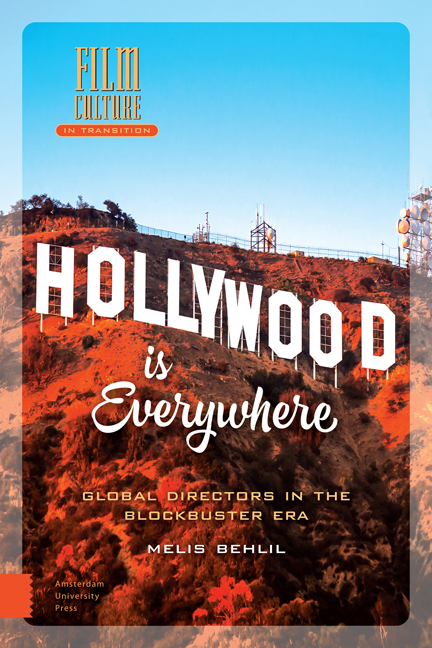Book contents
- Frontmatter
- Dedication
- Contents
- Acknowledgments
- Introduction: Hello Hollywood
- 1 Defining Hollywood
- 2 Cultural Work in a Globalizing World
- 3 Histories and Geographies of Global Directors
- 4 A View to a Franchise: James Bond
- 5 “Once More with the Volume Up”: Auto-remakes
- 6 I Want My MTV: Advertising and Music Videos
- 7 Conclusion: “Everywhere is Hollywood”
- Notes
- Bibliography
- List of Directors
- Index of Film Titles
- Index of Names
- Index of Subjects
- Film Culture in Transition
3 - Histories and Geographies of Global Directors
Published online by Cambridge University Press: 10 December 2020
- Frontmatter
- Dedication
- Contents
- Acknowledgments
- Introduction: Hello Hollywood
- 1 Defining Hollywood
- 2 Cultural Work in a Globalizing World
- 3 Histories and Geographies of Global Directors
- 4 A View to a Franchise: James Bond
- 5 “Once More with the Volume Up”: Auto-remakes
- 6 I Want My MTV: Advertising and Music Videos
- 7 Conclusion: “Everywhere is Hollywood”
- Notes
- Bibliography
- List of Directors
- Index of Film Titles
- Index of Names
- Index of Subjects
- Film Culture in Transition
Summary
Nationality and citizenship are problematic issues when it comes to people; they are no less so when it comes to films. In 2004, how to determine the nationality of a film sparked a significant controversy in France. The film in question was the French director Jean-Pierre Jeunet's UN LONG DIMANCHE DE FIANÇAILLES/A VERY LONG ENGAGEMENT. It was an adaptation of a French novel, shot in France and in French, with a French cast, crew and post-production lab. When the film's producers applied for financial support, an “agrément,” from the Centre National de la Cinématographie, their request was initially granted. An “agrément” is issued to all films with a French or European producer that qualify for the government's audiovisual support fund, and its criteria are based on a “barometer” system of points assigned in accordance with the nationalities of a film's participants. However, a group of French producers went to court to block the support for the film. The court subsequently ruled that UN LONG DIMANCHE was not a French film, because its French production company, 2003 Productions, although based in France, was partly owned by Warner Bros. In addition to the 32% directly owned by Warner France, another 43% of the shares were divided among the senior executives of Warner France. The court ruled that 2003 Productions had been created solely “to benefit from [state] financial help even though [the fund] is reserved for the European cinematographic industry.” Around the same time, Oliver Stone's ALEXANDER (2004), with Colin Farrell in the title role, did receive the financial support that was denied to UN LONG DIMANCHE. ALEXANDER was shot mostly in Morocco, in English, with an international cast and crew. Nonetheless, one of its producers was the French Pathé, its post-production was completed in France, and Oliver Stone holds dual French and US citizenship.
Despite the great talk of the globalization of Hollywood and film industries in general, the notion of national cinemas and the discourses surrounding them still exist, in tandem with, and sometimes in opposition to, transnational networks. Although I analyze talent flows within a transnational framework, I do acknowledge the initial definition based on nationality and the persistence of the national discourse.
- Type
- Chapter
- Information
- Hollywood is EverywhereGlobal Directors in the Blockbuster Era, pp. 55 - 80Publisher: Amsterdam University PressPrint publication year: 2016



